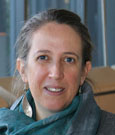
Michelle Boyle
QIMR Berghofer
Australia
EMBL Conference
EMBL is committed to sharing research advances and sustaining scientific interaction throughout the coronavirus pandemic. We are delighted to announce that the conference is going virtual and invite you to join us online. The virtual conference includes talks from invited speakers, short talk presenters, online group discussions and networking opportunities.
Malaria remains one of the most significant global public health challenges, with more than 200 million clinical cases worldwide each year. The lack of an effective licensed vaccine and the continual emergence of drug-resistant malaria parasites emphasizes the need for new control and prevention strategies. This need for innovation has become even more apparent with the disruption of global malaria control programs due to the COVID-19 pandemic and potential reversal of gains made over the last few decades. Generation of fundamental knowledge lies at the heart of developing new tools and innovations for malaria intervention. The malaria research community has a long history of being a highly collaborative field, reliant on diverse technologies, sharing of resources and dissemination of biological advances made. Accessibility and timely sharing of these advances through the establishment of new collaborations is therefore vital for the translation of new ideas into public health impact.
The 17th BioMalPar conference follows the success of previous years, building on the foundations of the EU-funded Networks of Excellence EviMalaR and BioMalPar that, for one and a half decades, have brought together malaria researchers from around the world to present and share recent ground-breaking findings on fundamental malaria research in an integrated and highly collaborative environment. This year’s conference will address fundamental questions on the biology of the malaria parasite, its vector, the immune response of the host, the disease that it causes, and the latest technological approaches. In keeping with the traditions of BioMalPar and EviMalaR, the conference will emphasise training and networking, with a focus on allowing speaking opportunities for early career researchers.
The conference series brings malaria researchers from around the world to present and share recent ground-breaking findings on fundamental malaria research in an integrated and highly collaborative environment.
The virtual BioMalPar will have:
“This was my first time attending a virtual conference and the organisers did a good job at hosting and trying to resolve technical glitches efficiently. There was more ease in participation and engaging speakers with questions through virtual chats compared to conventional conference events. Through this virtual conference, I was exposed to the leading edge of malaria research which would provide new perspectives, flexibility, and build my expertise to inject value to my research in immunopathogenesis in Malaria.” – Samantha Nguee, Singapore Immunology Network (SIgN), A*STAR, Singapore.

QIMR Berghofer
Australia

University of Geneva
Switzerland

Whitehead Institute for Biomedical Research
USA

KEMRI Wellcome Trust Programme in Kilifi
Kenya
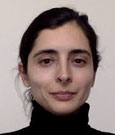
Institut Pasteur
France

Liverpool School of Tropical Medicine
UK

Instituto de Medicina Molecular
Portugal
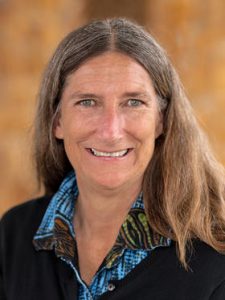
Michigan State University
USA
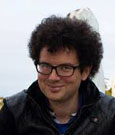
Institut Pasteur
France

Imperial College London
UK

Umea University
Sweden
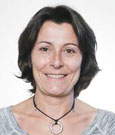
Institut Cochin
France

KEMRI/Wellcome Research Programme
Kenya
Centre for Tropical Medicine and Global Health
UK
Got something to say? Tweet it! #EMBLMalaria
To find out the equivalent time zone in your location, enter Berlin, the programme time and date along with your city into the Time Zone Converter.
| Time | Speaker |
|---|---|
| 13:00-13:10 | Opening remarks Jake Baum, Catherine Lavazec |
| 13:10-14:25 | Virtual Session 1: Host-parasite interactions Chairs: Moritz Treeck, Catherine Lavazec |
| 13:10-13:35 | Keynote lecture Transcriptomics of vivax relapsing malaria Liliana Mancio-Silva – Institut Pasteur, France |
| 13:35-13:45 | Cerebral malaria parasites and the blood-brain-barrier – Spheroids for the investigation of endothelial ingress and transmigration Yvonne Adams – University of Copenhagen, Denmark AVAILABLE ON DEMAND AFTER LIVE STREAM |
| 13:45-13:55 | Illuminating the black box of Plasmodium falciparum liver stage gene expression Gigliola Zanghi – Seattle Children’s Research Institute, United States of America AVAILABLE ON DEMAND AFTER LIVE STREAM |
| 13:55-14:05 | Monocytes, membranes and malaria: Breakdown in phospholipid asymmetry and its effect on phagocytosis of Plasmodium-infected erythrocytes Merryn Fraser – The Australian National University, Australia AVAILABLE ON DEMAND AFTER LIVE STREAM |
| 14:05-14:25 | Discussion round with speakers from Virtual Session 1 AVAILABLE ON DEMAND AFTER LIVE STREAM |
| 14:25-14:40 | Break |
| 14:40-15:55 | Virtual Poster session 1 – Meet the poster presenters (including live chats and discussion channels) |
| 15:55-16:00 | Break |
| 16:00-17:15 | Virtual Session 2: Parasite biology Chairs: Rita Tewari, Jake Baum |
| 16:00-16:25 | Keynote lecture Life in the fast lane, the fascinating biology of Plasmodium microgametogenesis Mathieu Brochet – University of Geneva, Switzerland AVAILABLE ON DEMAND AFTER LIVE STREAM |
| 16:25-16:35 | The molecular basis for cristae maintenance in Toxoplasma mitochondria Alexander Mühleip – Science for Life Laboratory, Sweden AVAILABLE ON DEMAND AFTER LIVE STREAM |
| 16:35-16:45 | The role of Plasmodium falciparum ESCRT-III proteins in EV biogenesis and protein export Yunuen Avalos Padilla – Institute of Bioengineering of Catalonia, Spain AVAILABLE ON DEMAND AFTER LIVE STREAM |
| 16:45-16:55 | Analysis of the role of MSPDBL2-positive schizonts in Plasmodium falciparum Aline Freville – London School of Hygiene and Tropical Medicine, United Kingdom AVAILABLE ON DEMAND AFTER LIVE STREAM |
| 16:55-17:15 | Discussion round with speakers from Virtual Session 2 AVAILABLE ON DEMAND AFTER LIVE STREAM |
| 17:15–17:45 | Break |
| 17:45-18:15 | Meet the speakers in individual Zoom meeting rooms |
| 18:15-18:20 | Short break and transition over to Lifetime Achievement Award |
| 18:20-19:00 | Lifetime Achievement Award Chair: Andy Waters Awardee: Terrie Taylor – Michigan State University, USA Laudatio: Malcolm E. Molyneux – Liverpool School of Tropical Medicine, United Kingdom AVAILABLE ON DEMAND AFTER LIVE STREAM |
| 19:00-19:10 | Break |
| 19:10-20:00 | Get together and virtual bar mixer |
Digital posters, recordings and discussion channels will be available for registered participants throughout the whole virtual conference (as well as 1 week before and 2 weeks after)
| Time | Speaker |
|---|---|
| 13:00-14:15 | Virtual Session 3: Immunology and vaccinology Chairs: Ian Cockburn, Francis Ndungu |
| 13:00-13:25 | Keynote lecture: T-follicular helper cells in antibody induction in human malaria Michelle Boyle – QIMR Berghofer, Australia AVAILABLE ON DEMAND AFTER LIVE STREAM |
| 13:25-13:35 | Development of a second-generation genetically attenuated malaria vaccine: En route to a first clinical trial Blandine M.D. Franke-Fayard – Leiden University Medical Centre, The Netherlands AVAILABLE ON DEMAND AFTER LIVE STREAM |
| 13:35-13:45 | T cell reprogramming and disease tolerance in human volunteers repeatedly infected with malaria Wiebke Nahrendorf – The University of Edinburgh, United Kingdom AVAILABLE ON DEMAND AFTER LIVE STREAM |
| 13:45-13:55 | Immunization of mice with CSP and the RIG-I adjuvant 5’ppp-dsRNA induces sterile protection against Plasmodium Ana Rafaela Teixeira – Instituto de Investigação e Inovação em Saúde (i3S), Portugal AVAILABLE ON DEMAND AFTER LIVE STREAM |
| 13:55-14:15 | Discussion round with speakers from Virtual Session 3 AVAILABLE ON DEMAND AFTER LIVE STREAM |
| 14:15-14:30 | Break |
| 14:30-15:45 | Virtual Session 4: Systems biology Chairs: Arthur Talman, Ellen Bushell |
| 14:30-14:55 | Keynote lecture: Coordinating unrest: Understanding the transition between the replicative and kinetic phases of the apicomplexan lytic cycle Sebastian Lourido – Whitehead Institute for Biomedical Research, USA AVAILABLE ON DEMAND AFTER LIVE STREAM |
| 14:55-15:05 | Middle-down proteomics reveal crosstalk between histone post-translational modifications during Plasmodium falciparum parasite development Hilde von Grüning – University of Pretoria, South Africa AVAILABLE ON DEMAND AFTER LIVE STREAM |
| 15:05-15:15 | Spatio-temporal scRNAseq of liver-stage malaria Amichay Afriat – Weizman Institute of Science, Israel AVAILABLE ON DEMAND AFTER LIVE STREAM |
| 15:15-15:25 | Epigenetic regulation of transcriptional variation: Comparative ChIP-seq analysis of P. falciparum sub-clones Lucas Michel Todó – ISGlobal, Spain AVAILABLE ON DEMAND AFTER LIVE STREAM |
| 15:25-15:45 | Discussion round with speakers from Virtual Session 4 AVAILABLE ON DEMAND AFTER LIVE STREAM |
| 15:45-16:15 | Break |
| 16:15-16:45 | Meet the speakers in individual Zoom meeting rooms |
| 16:45-17:15 | Break |
| 17:15-18:30 | Virtual Session 5: Vector biology and transmission Chairs: Stéphanie Blandin, Catherine Lavazec |
| 17:15-17:40 | Residual malaria transmission: Is ivermectin the queen on the chessboard? Marta Maia – KEMRI Wellcome Trust Programme in Kilifi, Kenya AVAILABLE ON DEMAND AFTER LIVE STREAM |
| 17:40-17:50 | The Plasmodium falciparum sexual stage-specific protein Pfs16 is a target for transmission-blocking antimalarial drug development Sabrina Yahiya – Imperial College London, United Kingdom AVAILABLE ON DEMAND AFTER LIVE STREAM |
| 17:50-18:00 | Mosquito lipogenic and lipolytic pathways are critical metabolic checkpoints for Anopheles reproduction and Plasmodium transmission Maurice Itoe – Harvard T.H. Chan School of Public Health, United States of America AVAILABLE ON DEMAND AFTER LIVE STREAM |
| 18:00-18:10 | Plasmodium falciparum utilizes two critical but distinct membrane fusogens for gamete fertilization Sudhir Kumar – Seattle Children’s Research Institute, United States of America AVAILABLE ON DEMAND AFTER LIVE STREAM |
| 18:10-18:30 | Discussion round with speakers from Virtual Session 5 AVAILABLE ON DEMAND AFTER LIVE STREAM |
| 18:30-18:40 | Break |
| 18:40-19:10 | Meet the speaker in individual Zoom meeting rooms |
| 19:10-19:30 | Break |
| 19:30-20:15 | Living Room Concert with Lazy Fur |
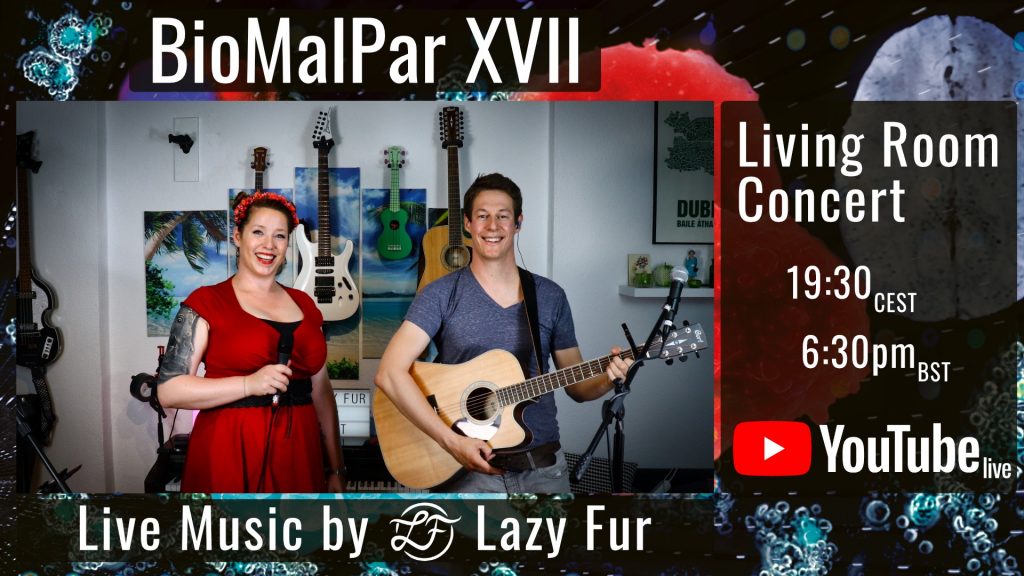
Digital posters, recordings and discussion channels will be available for registered participants throughout the whole virtual conference (as well as 1 week before and 2 weeks after)
| Time | Speaker |
|---|---|
| 12:00-12:30 | optional: Quiz time |
| 13:00-14:15 | Virtual Session 6: Epidemiology and clinical malaria Chairs: Kevin Tetteh, Francis Ndungu |
| 13:00-13:25 | Keynote lecture: Development and validation of serological markers for detecting recent P. vivax infections Michael White – Institute Pasteur, France AVAILABLE ON DEMAND AFTER LIVE STREAM |
| 13:25-13:35 | Evidence for genetic interaction between humans and malaria parasites in west and east Africa Gavin Band – University of Oxford, United Kingdom AVAILABLE ON DEMAND AFTER LIVE STREAM |
| 13:35-13:45 | Haemoglobinopathies and their effect on Plasmodium falciparum infection risk among children in Northern Region, Ghana Zakaria Seidu – University of Ghana, Ghana AVAILABLE ON DEMAND AFTER LIVE STREAM |
| 13:45-13:55 | From the patient to the flask: Genome sequence analysis of genetically complex infections during extended culture-adaptation Antoine Claessens – University of Montpellier, France AVAILABLE ON DEMAND AFTER LIVE STREAM |
| 13:55-14:15 | Discussion round with speakers from Virtual Session 6 AVAILABLE ON DEMAND AFTER LIVE STREAM |
| 14:15-14:30 | Break |
| 14:30-15:15 | The changing landscape of publishing – Editor panel discussion Chair: Jake Baum Editors: Dominique Soldati-Favre – Microbiology and Infectious Disease, eLife Zeljko Durdevic – EMBO Molecular Medicine, EMBO Press Caeul Lim – Cell Host & Microbe, Cell Press Stella Hurtley – Science Magazine Julija Hmeljak – Disease Models & Mechanisms, Company of Biologists AVAILABLE ON DEMAND AFTER LIVE STREAM |
| 15:15-15:20 | Break |
| 15:20-15:50 | Meet the editors in individual Zoom meeting rooms |
| 15:50-16:00 | Break |
| 16:00-17:15 | Virtual Poster Session 2 – Meet the poster presenters (including live chats and discussion channels) |
| 17:15-17:25 | Break |
| 17:25-18:40 | Virtual Session 7: Emerging challenges and new tools Chairs: Scott Lindner, Ellen Bushell |
| 17:25-17:50 | Keynote lecture: Pre-clinical and clinical evaluation of a P. berghei-based vaccine against human malaria Miguel Prudencio – Instituto de Medicina Molecular, Portugal AVAILABLE ON DEMAND AFTER LIVE STREAM |
| 17:50-18:00 | An extended DNA-free intranuclear compartment organizes centrosomal microtubules in Plasmodium falciparum Caroline Simon – Heidelberg University Hospital, Germany AVAILABLE ON DEMAND AFTER LIVE STREAM |
| 18:00-18:10 | 3D hepatic models – An innovative platform for translating anti-plasmodial liver stage activity Diana Fontinha – University of Lisbon, Portugal AVAILABLE ON DEMAND AFTER LIVE STREAM |
| 18:10-18:20 | Complete Genetic Attenuation of P. berghei through a Liver Stage-Specific CRISPR-RGR Gene Deletion Strategy Lucia Pazzagli – University of Perugia, Italy AVAILABLE ON DEMAND AFTER LIVE STREAM |
| 18:20-18:40 | Discussion round with speakers from Virtual Session 7 AVAILABLE ON DEMAND AFTER LIVE STREAM |
| 18:40-18:50 | Closing remarks Francis Ndungu, Ellen Bushell |
| 18:50-19:00 | Break |
| 19:00-19:30 | Meet the speakers in individual Zoom meeting rooms |
Digital posters, recordings and discussion channels will be available for registered participants throughout the whole virtual conference (as well as 1 week before and 2 weeks after)
Registration Fees (include access to all of the talks, digital poster sessions and online group discussions, and help us cover our costs to run the event.)
For further information please refer to the FAQ page):
| Academia | 190 Euro |
| PhD Student | 140 Euro |
| Industry | 240 Euro |
| EMBL Staff | Intranet access |
Accredited journalists may be eligible to register for a reduced press rate or in some cases for complimentary registration. Registrants may be required to provide accreditation or equivalent proof of press membership after registration. Please contact Iva Gavran for more information.
Registration will be on a first-come first-served basis. Your place can only be confirmed after payment of the registration fee.
Types of payments accepted are international bank transfers (only up to 8 weeks before event) and credit card payments.
Only registered participants are eligible to submit an abstract. We only accept online abstract submissions.
After registration you can submit your abstract via a separate link that will be provided in the email confirmation. Alternatively, you can access the link on the confirmation page directly after registering. The same login credentials are used for both processes.
Please note:
Title: The title should not exceed 20 words. Only the first word of the title should start with a capital letter and the rest of the title should be in lowercase.
Authors and Affiliations: Please fill in the author’s details as requested in the online form. The compulsory details are: First Name, Last Name, Organisation Name (Affiliation or Company), Country and Email. Mark only one author as the role of First author and please don’t forget to indicate who will be presenting. The order of the authors will be listed as follows: First Author, Co-First Author (alphabetically if multiple), co-author(s) (in the order added by the submitter).
Presentation Types: When submitting your abstract, you can apply for an oral or poster presentation. A selection process will take place with the results announced 2-3 weeks after the abstract submission deadline.
Please check our FAQs pages for further information on how to submit an abstract.
CPP Registration Fee Waivers
All academic and student registrants are invited to apply for a registration fee waiver, provided by the EMBL Advanced Training Centre Corporate Partnership Programme. The registration fee waiver covers the registration sum that you have paid to attend the meeting. Conference participants are not required to pre-pay the registration fee to be selected for a fee waiver for a virtual meeting. If you have already paid the registration fee and are awarded a fee waiver, it will be reimbursed after the meeting.
Childcare Grants
For participants with children, there is the possibility to apply for a childcare grant provided by the EMBL Advanced Training Centre Corporate Partnership Programme, to offset childcare costs incurred by participants or speakers when participating at a virtual event. Eligible costs include fees for a babysitter or childcare facility or travel costs for a care giver. Please note that priority will be given to early stage researchers. A maximum amount of 500 EUR can be awarded per participant selected for the virtual childcare grant. Costs will be reimbursed after the meeting only once a reimbursement form and original receipts have been received. Attendance at the event is required in order to be eligible to receive the reimbursement. In order to apply for this grant, you must be registered by the abstract submission deadline.
Merck registration fee waivers
BioMalPar Merck registration fee waivers enable the attendance of doctoral students and post-doctoral fellows from malaria endemic countries with the purpose of adding to the diversity of experiences represented by participants at the meeting.
Applications for financial assistance can be submitted via the submission portal* (for the submission of abstracts for conferences or the submission of motivation letters for courses) by completing the Financial Assistance Application Section (underneath the section for entering abstract/motivation letter information). The link to the portal can be found in the registration confirmation email that you will receive after registering for the conference or course.
For conferences, if you are not submitting an abstract, you can still apply for financial assistance in the submission portal by following the instructions here. Note that priority will be given to those submitting an abstract to present at the conference. In your application you will be asked to answer questions regarding your motivation for applying, and, for registration fee waivers, the reasons why your lab cannot fund your attendance and how your attendance will make a difference to your career. Application for financial support will not affect the outcome of your registration application.
*For some events, applications for Childcare Grants will still be done by email. Information about the grant will be sent out shortly after the abstract/motivation letter deadline. Please contact the event Conference Officer if you have any questions.
The scientific organisers will select the recipients of registration fee waivers during the abstract selection process. Results will be announced approximately 3 – 4 weeks before the event start date. Selection results do not impact your admission to the meeting. Registration fee waiver selection is based on your current work or study location, your motivation for applying, the reasons for needing financial support and the impact this event will have on your career. Childcare grants are allocated based on career stage, with priority given to early stage researchers.
A list of external funding opportunities can be found here, and information on attending a conference as an event reporter here.
For further information about financial assistance please refer to the FAQ page.
Please do:
Please don’t:
Additional information can be found in our Code of Conduct.
It is important to stay healthy and move around, especially when you are attending an event virtually. We have put together a few coffee break stretches and yoga videos. You can find these under ‘resources’ on the conference platform.
Please use the Q&A function. It is possible to send a direct message to participants, poster presenters, and speakers within the conference platform.
If you have any other questions, you can go to the Help Desk on the conference platform. Click on ‘more’ on the top menu and click Help Desk.
The programme is planned based on Central European Time (CET) or Central European Summer Time (CEST) unless otherwise stated. As many virtual participants are attending from around the world, we do our best to accommodate as many timezones as possible when creating the programme. Please take your time zone into consideration when planning your attendance. Remember to set your time zone in your account.
We are using a virtual event platform for this conference. More information about the platform will be shared ahead of the conference.
Conference Sponsor:

Thanks to our media partners:
Disease Models & Mechanisms, The Company of Biologists Journal
EMBO Molecular Medicine, an EMBO Press journal
Open Biology, a Royal Society journal
Sponsorship Opportunities
We offer a variety of event sponsoring possibilities, with the flexibility to select a set sponsorship package or combine individual sponsorship options to suit your event budget. Discounts are available for companies sponsoring multiple events at EMBL Heidelberg. View other conferences, or contact sponsorship@embl.de for further information.
If you are interested in becoming a media partner of this event, please visit our media partnerships webpage.
EMBL wishes to warn sponsors of EMBL conferences and courses of fraudulent schemes purporting to offer sponsorship opportunities on behalf of EMBL or affiliated with EMBL officials. One current scam campaign of which we are aware is conducted using the name ‘Judy Eastman’ (judy@gopcontact.a2hosted.com) and entails approaches to sponsors offering sponsorship opportunities on EMBL’s behalf. Please be kindly advised that all relevant communication regarding sponsorship of EMBL conferences, symposia and courses is handled by EMBL directly and is sent from an official EMBL account. EMBL does not work with any external providers on sponsorship acquisition.
Please also note that:
Suspicious communications purportedly from, for or on behalf of EMBL should be reported to EMBL at the following email address sponsoring@embl.de.
Date: 25 - 27 May 2021
Location: Virtual
Deadline(s):
Abstract submission: Closed
Registration: Closed
Contact: Iva Gavran